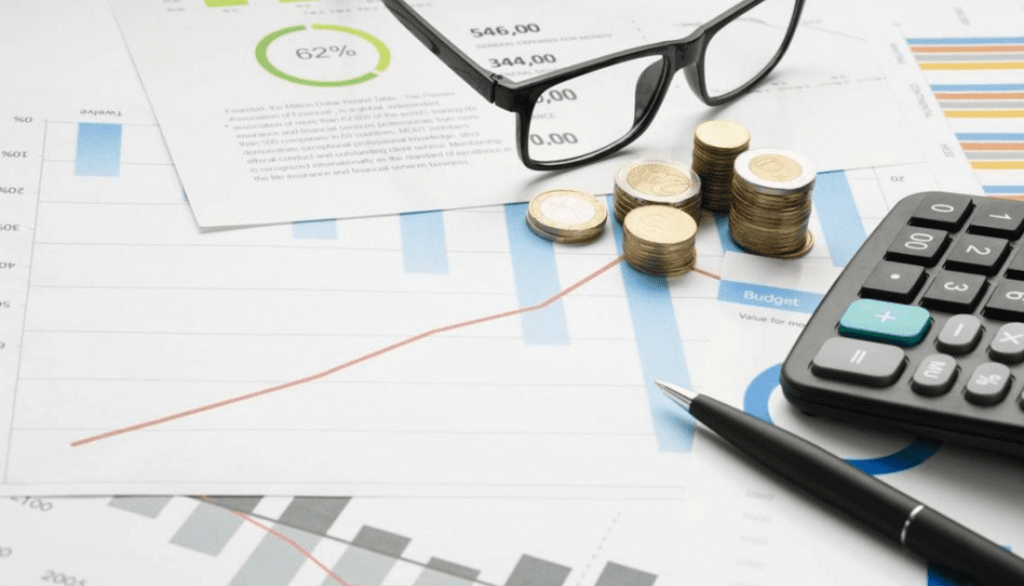In today’s ever-changing economy, understanding how inflation impacts your personal finances is crucial for maintaining financial stability. As the cost of living continues to rise, from everyday expenses like groceries to larger financial commitments such as mortgages and loans, effectively managing your money has become more important than ever.
High inflation can erode the purchasing power of your savings, making it necessary to stay informed and take proactive steps to protect your wealth. In this blog post, we will explore the effects of inflation on your financial health and provide actionable tips on how to safeguard your assets.
Understanding the implications of rising prices on personal finances

Inflation is an increase in the price level of goods and services over time. This means that your money buys less than it did before. When the inflation rate rises, you might notice that everyday items such as groceries, gas, and utilities become more expensive. This can put a strain on your budget and reduce your ability to save.
For those with fixed incomes or limited salary increases, inflation can be particularly challenging. It can diminish the value of cash savings and affect the real return on investments. Therefore, being aware of inflation’s impact is key to maintaining your financial stability. One of the most noticeable effects of inflation is the decrease in purchasing power. As prices rise, the same amount of money will cover fewer goods and services, forcing you to adjust your spending habits or dip into your savings.
Inflation’s effect on savings and investments
Inflation can significantly affect your savings and investments. If the return on your savings accounts or investments does not keep up with the rate of inflation, the real value of your money decreases over time. This is known as the inflationary erosion of purchasing power.
For example, if you have a savings account that earns a 2% interest rate but the inflation rate is 3%, you are effectively losing purchasing power each year. Therefore, it’s essential to seek investment options that offer returns higher than the inflation rate to preserve and grow your wealth.
Inflation also affects bond prices and fixed-income investments. When inflation rises, the value of fixed-income investments tends to fall, as future interest payments are worth less in today’s dollars. Thus, diversifying your investment portfolio is vital to mitigate these risks.
Adjusting your budget to combat declining buying power
To cope with the negative impact of inflation, regularly reviewing and adjusting your budget is crucial. Start by tracking your expenses and identifying areas where you can cut back. Prioritize essential expenses and look for ways to decrease discretionary spending.
Furthermore, consider creating an emergency fund to cover unexpected costs and increase your financial security. Automating your savings can also help ensure that you consistently set aside money for your future, even in times of rising prices.
Another effective strategy is to reduce your reliance on debt. High inflation often leads to increased interest rates, which can make borrowing more expensive. Paying down existing debt can lighten the load on your finances and provide more flexibility to adapt to changing economic conditions.
Strategies to protect your wealth from inflation
While inflation is an inevitable part of the economic cycle, there are strategies you can implement to shield your wealth from its effects. Diversifying your investments is one of the most effective ways to safeguard your assets against inflation. Investing in assets like real estate, commodities, and inflation-protected securities can offer protection. These assets tend to appreciate in value during inflationary periods, providing a hedge against rising prices.
Real estate, for example, often benefits from inflation as property values and rental incomes generally rise. Similarly, commodities such as gold and oil tend to maintain their value and even increase during inflationary times. Inflation-protected securities, like Treasury Inflation-Protected Securities (TIPS), offer returns that adjust with the inflation rate, ensuring your investment keeps pace with rising prices.
The role of diversification in inflation defense
Diversification spreads your investments across different asset classes to reduce risk. By not putting all your eggs in one basket, you can mitigate the adverse effects of inflation on your overall portfolio. Including stocks, bonds, real estate, and commodities in your portfolio minimizes the risk of losing value in any one category.
Stocks, for instance, can provide growth potential that outpaces inflation, while bonds can offer stability during market volatility. Moreover, consider adding international investments to your portfolio. Different regions experience inflation at varying rates, and investing globally can provide additional protection against domestic inflation.
Employing inflation-protected investments
Inflation-protected investments are specifically designed to safeguard your money from inflation’s eroding effects. Treasury Inflation-Protected Securities (TIPS) are a popular choice, as their principal value increases with inflation. Additionally, Series I Savings Bonds, issued by the U.S. government, offer fixed interest along with a variable component that adjusts with inflation. These bonds are a low-risk option to preserve your purchasing power.
Other alternatives include investing in mutual funds or exchange-traded funds (ETFs) that focus on inflation-protected securities. These can provide diverse exposure to inflation-resistant assets and help balance your portfolio against economic fluctuations.



